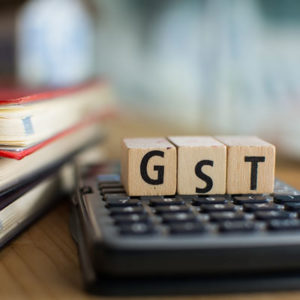Hospitality industry’s apex body Federation of Associations in Indian Tourism and Hospitality or FAITH has handed over its GST representation to the Ministry of Finance in charge for recommending rates to the GST council.
Income Tax Representative Services in Purnia, Bihar
A representative assessee is a person who acts as a legal representative of another person under the Income Tax Act. The Team of Income Tax Experts at Avyud Consultancy has many years of experience. Our team has worked with many companies in all types of sectors and every time our team of Income Tax experts has done well. We can solve all your tax problems.
The law relating to the representative assessee is available under section 160(1)(i) of the Income Tax Act. Representative assessees are used while assessing a non-resident taxpayer under the provisions of the Income Tax Act. As per section 163 of the Income Tax Act, a representative assessee is a person who acts as an agent on behalf of an NRI for the purposes of assessment of income tax.
Contact Us for Income Tax Representative Services in Purnea

Why Hire a Tax Representative?
Beyond legal liability, tax representation is a simple and economical alternative to the physical imposition by creating a branch or subsidiary. In effect, tax representation allows companies to enter the market while avoiding the cost and hassle of physical imposition that involves building a structure and managing a separate accounting. This activity is completely remote-controlled through a tax representative, who will handle all GST-related obligations required by the local tax administration: obtaining GST number, periodic declarations, submission of GST payments, submission of a request for GST refund, e.t.c.
Appearance Before An Income Tax Authority By An Authorized Representative
As per Section 288(1), any citizen or assessee who is at risk to introduce himself or herself before any Income Tax Authority, concerning any procedures taking spots according to the Act, and who is required to introduce himself or herself face to face with the end goal of any examination with respect to the Authority, may send an approved agent in his or her place, according to the arrangements laid out in this area.
All together for a duty assessee to approve any person to speak to him or her, a composed authorisation must be given expressing that the individual picked should show up for his or her sake as an ‘Approved Representative’. This individual could be any of the accompanying:
- A relative of the assessee or a worker of the assessee
- A Scheduled Bank Officer at a bank where the assessee holds aKindly find the revised invoice of december present record
- A lawful pay charge expert
- A sanctioned bookkeeper
- A bookkeeping examination graduate
- A person with the fundamental capabilities as endorsed by the Board
- A person who has beforehand spoken to the assessee
- A person who was beforehand a wage impose specialist
Speak to Our Tax Representative Expert
Non Entitlement Of An Authorized Representative To Represent An Income Tax Assessee
In specific cases, approved agents may not be allowed to speak to a citizen or a wage impose assessee.
- In the event that the approved agent is a person who has beforehand been performing obligations as an Income Tax Authority, yet at a position equivalent to or higher than that of an Income Tax Officer, and who has been utilized for a long time or more from the initiation of this arrangement, at that point he or she won’t be qualified to speak to the duty assessee being referred to for a span of no less than two years following the season of his or her renunciation.
- In the event that the approved agent
- Has been expelled or ended from any Government benefit after April 1 1938
- Has been punished or indicted concerning any offense that has occurred amid assess procedures
- Has been pronounced bankrupt or indebted
- In the event that any lawful specialist or sanctioned bookkeeper:
- Has been accused of unfortunate behavior and has had disciplinary move made against him or her by any specialist that has been approved to do disciplinary measures against the person
- Has been discovered to not have the capabilities required to execute as a legitimate specialist or contracted bookkeeper, and has been accused of expert unfortunate behavior or offenses by any wage assess expert in conjunction with procedures identified with pay impose
On the off chance that the approved agent is precluded from speaking to a duty assessee according to the arrangements plot in Section 61, subsection (3) of the Income Tax Act,1922
Why Choose Us for Tax Representative Services
Our Happy Client






FAQs for Income TAX Return Filing Services
What is Income Tax Filing?
Tax is a central element to the revenue generation system of the Indian government. Among the multitude of taxes present in the system, IT is the one that deals with the taxation of the earning of every individual, firm and organisation in a financial year. The earning or income could be in the form of regular wages, interest, dividends, capital gains or any other profits.
Income tax have to applicable for individuals, businesses, corporate, and all other establishments that generate income. The IT Act, 1961 regulates the collection, recovery, and administration of income tax (IT) in India. The government requires the tax amount for several purposes ranging from building the infrastructure to paying the state and central government’s employees. It helps the government in generating a steady source of income that is used for the development of the nation.
The IT is paid every month from the monthly earnings, but, it is calculated on an annual basis. The amount of income tax (IT) an individual has to pay depends on many factors.
What is Income Tax Return?
Income Tax Return is a proof that you have paid your income tax. It contains details about your annual income and the amount of tax you have paid. Every year, Indian citizens who earn taxable income have to file Income Tax Return (ITR). Filing ITR will help you in getting a refund in case you pay more tax than what you are required to pay. If you fail to file your ITR, you might have to pay penalty or face legal consequences.
What are The Income Tax Slab for Individual & HUF?
Income tax slab for individual taxpayers & HUF (less than 60 years old) (both men & women)
| Income Slab | Tax Rate |
| Income up to Rs. 2,50,000* | No Tax |
| Income from Rs. 2,50,000 – Rs. 5,00,000 | 5% |
| Income from Rs. 5,00,000 – 10,00,000 | 20% |
| Income more than Rs. 10,00,000 | 30% |
| Surcharge: 10% of income tax, where total income is between Rs. 50 lakhs and Rs.1 crore. 15% of income tax, where total income exceeds Rs. 1 crore. | |
| Cess: 3% on total of income tax + surcharge. | |
| * Income upto Rs. 2,50,000 is exempt from tax if you are less than 60 years old. | |
What are Income The Tax Slab for Senior Citizens?
Income tax slab for individual tax payers & HUF (60 years old or more but less than 80 years old) (both men & women)
| Income Slab | Tax Rate |
| Income up to Rs. 3,00,000* | No Tax |
| Income from Rs. 3,00,000 – Rs. 5,00,000 | 5% |
| Income from Rs. 5,00,000 – 10,00,000 | 20% |
| Income more than Rs. 10,00,000 | 30% |
| Surcharge: 10% of income tax, where total income is between Rs. 50 lakhs and Rs.1 crore. 15% of income tax, where total income exceeds Rs.1 crore. | |
| Cess: 3% on total of income tax + surcharge. | |
| * Income up to Rs. 3,00,000 is exempt from tax if you are more than 60 years but less than 80 years of age. | |
Why To Prepare CMA Data Report?
Small or large business requires CMA Reports for applying for project-oriented loans, long term loans and for enhancing working capital limits. Banks require these reports every year to ensure effective management of working capital.
- Preparation of particulars for the existing credit & loans on the entity and disclosure of current fund & non-fund based liabilities.
- Preparation of financials including operating statement, profit and loss account, balance sheet audit reports and other necessary revenue and analysis statements.
- Preparation of working capital changes & ratio analysis.
- Calculation of Maximum Permissible Bank Finance (MPBF).
What are The Income Tax Slab for Hindu Undivided?
Income Tax Slab for Individuals and Hindu Undivided Income Tax Slab for Individuals and Hindu Undivided Families: Families:
These are the slab rates for FY 2016-17 (AY 2017-18) These income tax slab rates are also applicable for : FY 2015-16 (AY 2016-17) FY 2014-15 (AY 2015-16)
On all the tables listed below, Education Cess of 2% and SHEC of 1% will be levied on the tax computed using the rates given below.
Under Section 87(A), an Income Tax Rebate of Rs.2,000 is provided for all individuals earning an income that’s less than Rs.5,00,000 per annum.
Tax applicable for individuals below 60 years:
| Annual Income | Tax Rates | Education Cess | Secondary and Higher Education Cess |
| Up to Rs.2,50,000 | Nil | Nil | Nil |
| Rs.2,50,001-Rs.5,00,000 | 5% | 2% of income tax | 1% of income tax |
| Rs.5,00,001-Rs.10,00,000 | Rs.12,500 + 20% | 2% of income tax | 1% of income tax |
| Above Rs.10,00,000 | Rs.1,12,500 + 30% | 2% of income tax | 1% of income tax |
Tax applicable for individuals over 60 years and under 80 years:
| Annual Income | Tax Rates | Education Cess | Secondary and Higher Education Cess |
| Up to Rs.3,00,000 | Nil | Nil | Nil |
| Rs.3,00,001-Rs.5,00,000 | 5% | 2% of income tax | 1% of income tax |
| Rs.5,00,001-Rs.10,00,000 | Rs.10,00 + 20% | 2% of income tax | 1% of income tax |
| Above Rs.10,00,000 | Rs.1,10,000 + 30% | 2% of income tax | 1% of income tax |
Tax applicable for individuals over 80 years and above:
| Annual Income | Tax Rates | Education Cess | Secondary and Higher Education Cess |
| Up to Rs.5,00,000 | Nil | Nil | Nil |
| Rs.5,00,001-Rs.10,00,000 | 20% | 2% of income tax | 1% of income tax |
| Above Rs.10,00,000 Rs.1,12,500 | Rs.1,00,000 + 30% | 2% of income tax | 1% of income tax |
Income Tax should be deducted at applicable rates as above along with surcharge and Education Cess. The individuals who are earning over Rs.50 lakh and under Rs.1 crore will be required to pay a surcharge of 10% tax on the total income and the individuals who are earning over Rs.1 crore, a surcharge of 15% will be applicable as the income tax.



